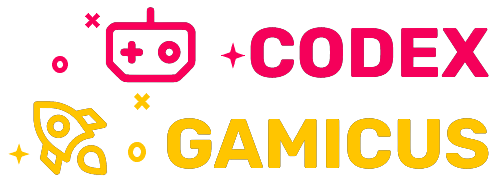BritishCynic (talk | contribs) m (BritishCynic moved page Battle.net to Blizzard Battle.net) |
BritishCynic (talk | contribs) mNo edit summary |
||
| Line 1: | Line 1: | ||
| − | {{Move|Blizzard Battle.net|reason=https://worldofwarcraft.com/en-us/news/20972461}} |
||
{{SoftwareInfobox |
{{SoftwareInfobox |
||
| image = Battle net logo.gif |
| image = Battle net logo.gif |
||
| Line 8: | Line 7: | ||
}} |
}} |
||
| − | The '''''Blizzard Battle.net''''' (formerly just '''Battle.net''') free online gaming service was created in [[1996 in video gaming|1996]] by [[Blizzard Entertainment]], to facilitate the growth of its own games, namely ''[[Warcraft II: Battle.net Edition]]'', ''[[Diablo]]'', and ''[[StarCraft]]''. ''[[Diablo II]]'' and ''[[Warcraft III: Reign of Chaos]]'' (and its expansion, ''[[Warcraft III: The Frozen Throne]]'') would later also come to use the service. |
+ | The '''''Blizzard Battle.net''''' (formerly just '''Battle.net''', renamed on [[April 14]], [[2017 in video gaming|2017]]) free online gaming service was created in [[1996 in video gaming|1996]] by [[Blizzard Entertainment]], to facilitate the growth of its own games, namely ''[[Warcraft II: Battle.net Edition]]'', ''[[Diablo]]'', and ''[[StarCraft]]''. ''[[Diablo II]]'' and ''[[Warcraft III: Reign of Chaos]]'' (and its expansion, ''[[Warcraft III: The Frozen Throne]]'') would later also come to use the service. |
Being a wholly closed, commercial venture, and with the complication that use of the service (after initial investment in a game that uses it) is free, ''Battle.net'' teeters between balance and order often. Blizzard frequently takes, some might say draconian, action in banning game CD-keys and Battle.net account names associated with game exploits, cheating, and game hack modifications. |
Being a wholly closed, commercial venture, and with the complication that use of the service (after initial investment in a game that uses it) is free, ''Battle.net'' teeters between balance and order often. Blizzard frequently takes, some might say draconian, action in banning game CD-keys and Battle.net account names associated with game exploits, cheating, and game hack modifications. |
||
| Line 22: | Line 21: | ||
* The ''[[World of Warcraft: Classic]]'' demo was available via the launcher during the late 2018 test, and has been listed on the launcher ever since. |
* The ''[[World of Warcraft: Classic]]'' demo was available via the launcher during the late 2018 test, and has been listed on the launcher ever since. |
||
* ''[[Diablo III]]'' and its expansion pack, ''[[Diablo III: Reaper of Souls|Reaper of Souls]]'' |
* ''[[Diablo III]]'' and its expansion pack, ''[[Diablo III: Reaper of Souls|Reaper of Souls]]'' |
||
| − | * ''[[Hearthstone |
+ | * ''[[Hearthstone]]'' |
* ''[[StarCraft II: Wings of Liberty]]'', and its expansion packs, ''[[StarCraft II: Heart of the Swarm|Heart of the Swarm]]'' and ''[[StarCraft II: Legacy of the Void|Legacy of the Void]]'' |
* ''[[StarCraft II: Wings of Liberty]]'', and its expansion packs, ''[[StarCraft II: Heart of the Swarm|Heart of the Swarm]]'' and ''[[StarCraft II: Legacy of the Void|Legacy of the Void]]'' |
||
* ''[[StarCraft: Remastered]]'' |
* ''[[StarCraft: Remastered]]'' |
||
Revision as of 19:13, 10 August 2019
The Blizzard Battle.net (formerly just Battle.net, renamed on April 14, 2017) free online gaming service was created in 1996 by Blizzard Entertainment, to facilitate the growth of its own games, namely Warcraft II: Battle.net Edition, Diablo, and StarCraft. Diablo II and Warcraft III: Reign of Chaos (and its expansion, Warcraft III: The Frozen Throne) would later also come to use the service.
Being a wholly closed, commercial venture, and with the complication that use of the service (after initial investment in a game that uses it) is free, Battle.net teeters between balance and order often. Blizzard frequently takes, some might say draconian, action in banning game CD-keys and Battle.net account names associated with game exploits, cheating, and game hack modifications.
For this and other reasons, the bnetd project, basically an emulation of Battle.net, was created to allow players to use the online-play capabilities of Battle.net without having to play by Blizzard's rules (since Blizzard's servers would be cut out of the picture). Under the Digital Millennium Copyright Act (DMCA), Blizzard ordered the bnetd project to Cease and Desist in early 2002.
Launcher
During World of Warcraft: Cataclysm, a new service was envisaged by the developers of Blizzard Entertainment; a combination of a launcher and friend system culminated in the Battle.net Launcher. This went through several renames, including Blizzard App and Battle.net desktop app; the current name of the client is Blizzard Battle.net.
The launcher supports the following Blizzard Entertainment video games, and is supported on both Microsoft Windows and macOS.
- World of Warcraft (supported since the Mists of Pandaria expansion, the Beta of the launcher supported the Cataclysm expansion.)
- The World of Warcraft: Classic demo was available via the launcher during the late 2018 test, and has been listed on the launcher ever since.
- Diablo III and its expansion pack, Reaper of Souls
- Hearthstone
- StarCraft II: Wings of Liberty, and its expansion packs, Heart of the Swarm and Legacy of the Void
- StarCraft: Remastered
- Heroes of the Storm
- Overwatch
- Warcraft III: Reforged
The launcher also supports the following video games that was published by Activision:
The client itself supports automatic patching for the games outlined above, and is able to pre-load expansion content before official release. There is currently no in-launcher support for Blizzard Entertainment's earlier offerings (such as Warcraft III: Reign of Chaos) via this platform. The Launcher supports two-factor authentication via both the Battle.net Authenticator and Blizzard Mobile Authenticator.
